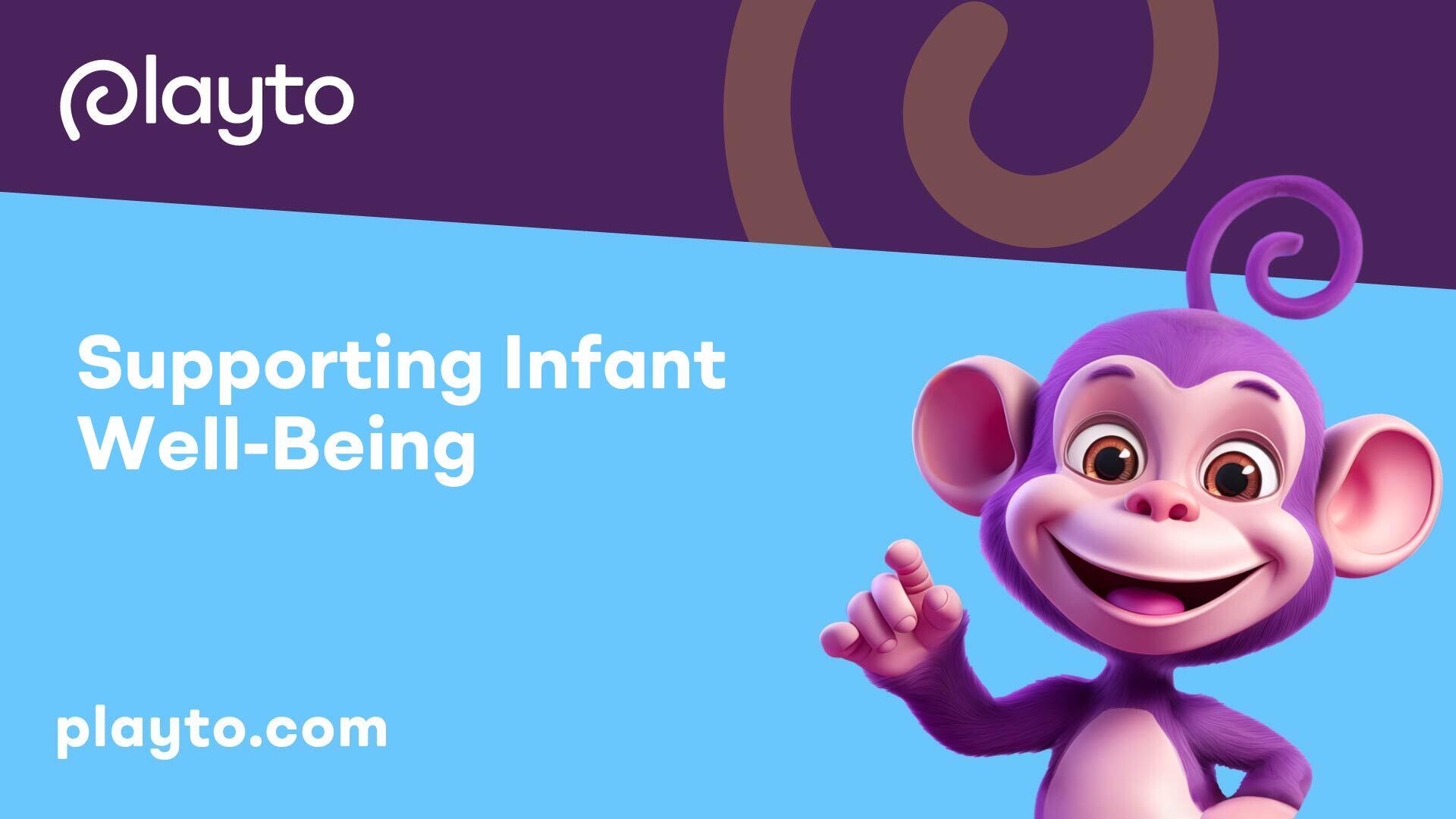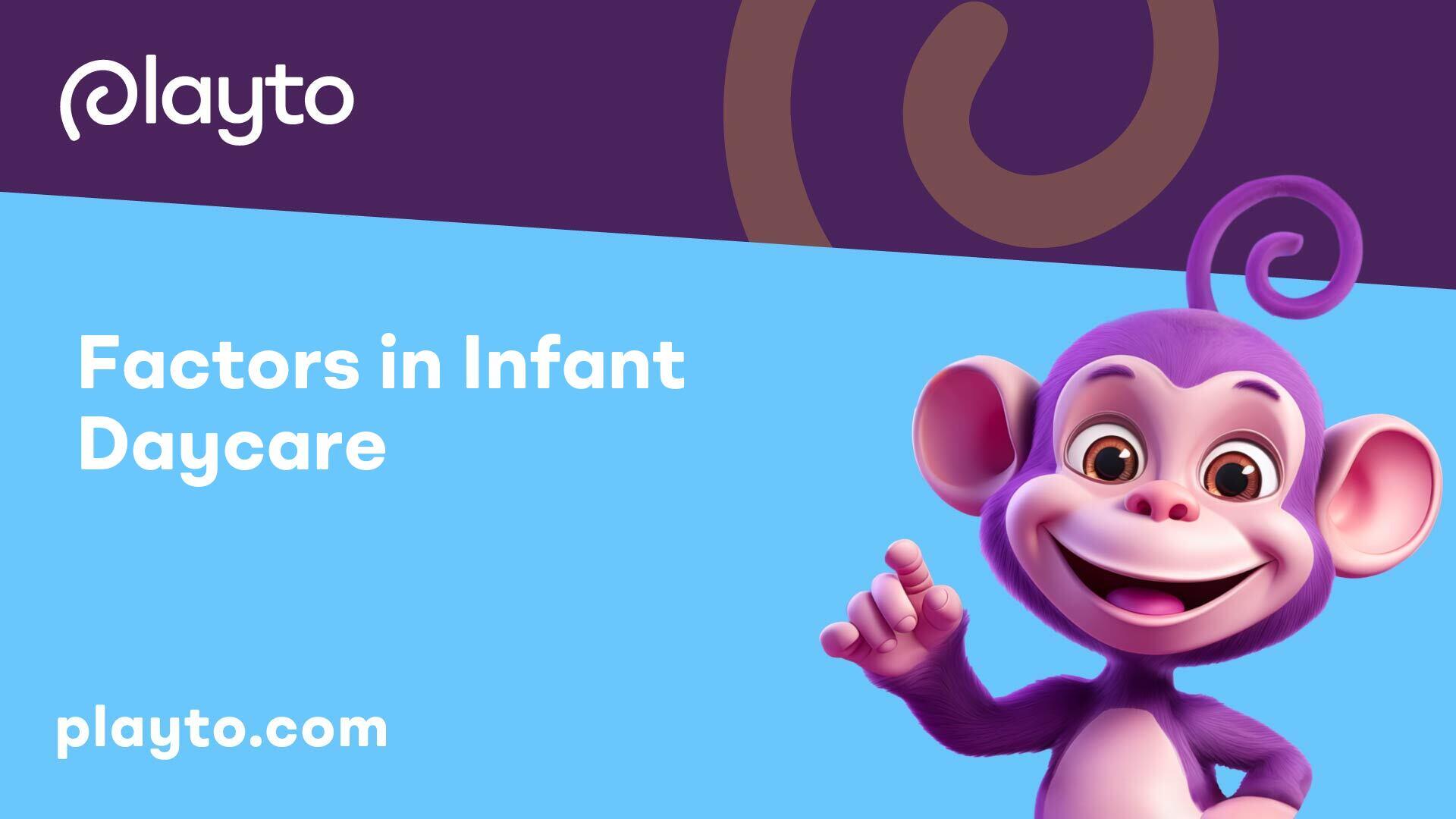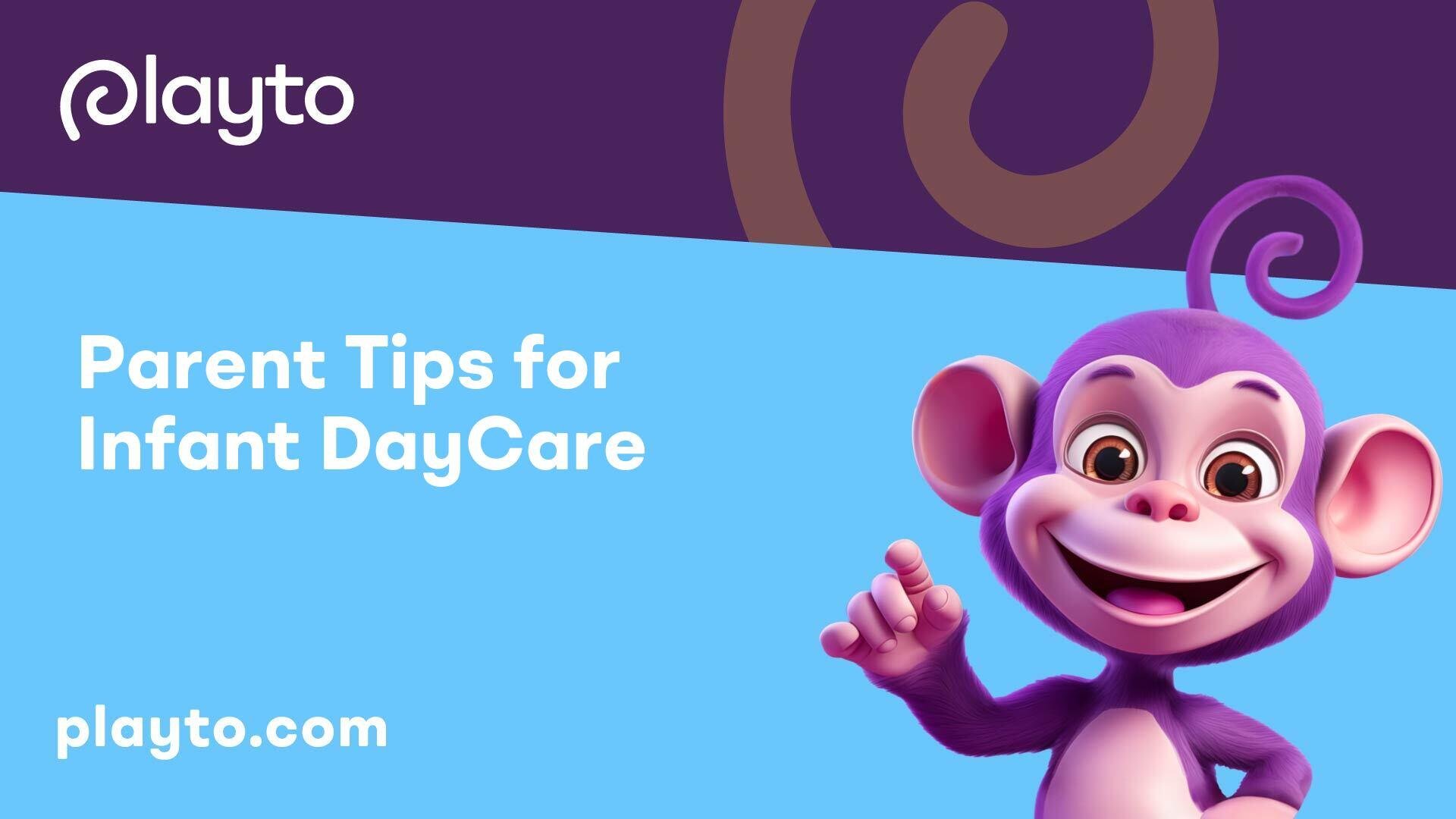
Choosing the Right Daycare
When embarking on the journey of selecting the ideal daycare for your infant, it's essential to consider key factors to ensure a nurturing and safe environment. Here, we explore the importance of in-person visits and the valuable guidance provided by tip sheets.
In-Person Visits
Conducting in-person visits to potential child care programs is a fundamental step in the selection process. Visiting each setting allows you to evaluate firsthand whether it aligns with your expectations and meets the needs of your infant. By observing the daily routines, interactions between caregivers and children, and the overall atmosphere of the facility, you can make an informed decision about the suitability of the daycare for your little one.
The Childcare.gov emphasizes the significance of in-person visits as they provide a tangible experience of the program's operation and the environment in which your child will spend their time. This personal assessment allows you to gauge the quality of care, cleanliness, safety protocols, and the level of engagement your child is likely to receive.
Tip Sheets Guidance
To further aid parents in the daycare selection process, tip sheets such as "Look, Listen, and Ask" offer valuable guidance. These informative resources are designed to assist parents in gathering essential information about child care programs. Each tip sheet is tailored to different types of child care settings, providing specific criteria and questions to consider during your visits.
The tip sheets serve as concise tools to empower parents with knowledge and insights that help them navigate the complexities of choosing quality child care. By following the guidance outlined in these resources, parents can gain a deeper understanding of the daycare's policies, educational approaches, safety measures, and staff qualifications.
By integrating the combination of in-person visits and leveraging tip sheets, parents in New York can make well-informed decisions when selecting the right daycare for their infants. This proactive approach ensures that the chosen setting aligns with their child's developmental needs, fosters a supportive environment, and promotes a positive early learning experience.

Supporting Infant Well-Being
To facilitate the optimal development and nurturing of infants in a daycare setting, it is essential to focus on their mental and emotional health as well as the importance of routines.
Mental & Emotional Health
A child's mental health and emotional well-being are significantly influenced by their connections to primary caregivers such as parents and child care providers. Establishing strong bonds and providing a nurturing environment from the early stages of infancy is crucial for fostering a child's emotional security and overall well-being. A nurturing and secure environment can positively impact an infant's sense of trust, attachment, and emotional resilience.
When selecting an infant daycare facility, parents should prioritize centers that emphasize the emotional well-being of each child. Encouraging positive interactions, providing emotional support, and fostering a sense of security are key components of promoting mental and emotional health in infants. By engaging in activities that promote emotional intelligence and social development, daycare centers can contribute to the overall well-being of infants under their care.
Importance of Routines
Routines and schedules play a vital role in supporting children's well-being by creating predictability and structure in their daily lives [1]. Predictability in routines helps infants feel secure, reduce anxiety, and understand what to expect throughout the day. Consistent daily schedules and structured routines not only provide a sense of security but also assist infants in developing a sense of control and competence in their environment.
In infant daycare settings, implementing consistent daily schedules and step-by-step routines can aid in smoother transitions and adjustments for infants. By establishing a structured and predictable environment, infants can feel more confident and secure in their activities, leading to enhanced emotional well-being and overall development.
By placing a strong emphasis on mental and emotional health and incorporating structured routines into daily activities, daycare centers can create a nurturing and supportive environment that promotes the well-being and development of infants under their care. It is through these foundational principles that infants can thrive, learn, and grow during their crucial first year in a daycare setting.

Factors in Infant Daycare
When considering infant daycare options, several critical factors come into play, including the staff-to-infant ratio and program guidelines. These elements play a pivotal role in ensuring a nurturing and safe environment for your little one.
Staff-to-Infant Ratio
One of the most crucial aspects to consider when selecting an infant daycare facility is the staff-to-infant ratio. This ratio refers to the number of caregivers available per child and directly impacts the quality of care each infant receives. It is essential to look for daycare centers that maintain a low teacher-to-infant ratio to ensure that your baby's needs are promptly met and that caregivers can form strong bonds with each infant.
Research, as highlighted by the Young Scholars Academy, emphasizes that low teacher-to-infant ratios are vital for providing individualized attention and fostering positive interactions between caregivers and infants. These interactions, including eye contact, emotional responsiveness, and engaging activities, are instrumental in supporting the cognitive and emotional development of young children.
Program Guidelines
In addition to the staff-to-infant ratio, the program guidelines established by the infant daycare center are equally important. These guidelines outline the structure and routines followed in the facility, ensuring consistency and predictability for the infants in their care. High-quality daycare programs often prioritize employing teachers with specialized education related to infants and toddlers, as noted by the Young Scholars Academy.
Accreditation standards, such as those offered by organizations like the NAEYC (National Association for the Education of Young Children) or state-level accreditation, provide assurance to parents regarding the quality of care their infants will receive. Daycare centers that meet these stringent quality standards demonstrate a commitment to excellence in early childhood education and development.
By carefully evaluating the staff-to-infant ratio and program guidelines of potential infant daycare centers, parents can make informed decisions that prioritize their child's well-being and early learning experiences. These factors, alongside health and safety protocols, caregiver qualifications, and a family-oriented philosophy, contribute to creating a nurturing and enriching environment for infants in daycare settings.
Ensuring Quality Care
When entrusting their infants to daycare facilities, parents in New York must prioritize quality care and safety. Two critical factors that significantly impact the standard of care provided are caregiver qualifications and accreditation standards set by recognized organizations.
Caregiver Qualifications
As highlighted by Young Scholars Academy, the qualifications of caregivers play a pivotal role in ensuring the well-being and development of infants in daycare settings. High-quality infant daycare programs often employ teachers with specific education related to infants and toddlers. These caregivers are trained to understand the unique needs of young children and provide appropriate care and stimulation.
It is essential for parents to inquire about the educational background and training of the caregivers at the daycare facility. Caregivers with early childhood education credentials or certifications in infant and toddler care are better equipped to support the growth and learning of infants. Moreover, ongoing professional development and training for caregivers are essential to maintain best practices and stay updated on the latest childcare methodologies and safety protocols.
Accreditation Standards
Accreditation standards serve as a benchmark for evaluating the quality and excellence of infant daycare facilities. Acquiring accreditation from reputable organizations, such as the National Association for the Education of Young Children (NAEYC), signifies that the daycare center has met rigorous quality standards and demonstrates a commitment to providing a nurturing and stimulating environment for infants.
Accredited infant daycares adhere to strict guidelines related to caregiver qualifications, health and safety protocols, program structure, and a family-oriented philosophy, as emphasized by Young Scholars Academy. Parents in New York can have peace of mind knowing that an accredited daycare facility has undergone thorough evaluation and meets established criteria for excellence in childcare.
When selecting an infant daycare, parents should prioritize centers that hold recognized accreditations, such as NAEYC accreditation or state-level accreditation. These certifications serve as indicators of a daycare's commitment to maintaining high standards of care and actively engaging in continuous quality improvement initiatives.
By focusing on caregiver qualifications and accreditation standards, parents in New York can ensure that their infants receive the highest level of care and support in daycare settings. Prioritizing these factors can help create a positive and enriching early learning experience for young children, setting a strong foundation for their future development and well-being.
Transitioning to Daycare
As new parents in New York prepare to transition their infants to daycare, it's important to anticipate challenges and establish supportive routines to ease the adjustment for both parent and child. This section will delve into the necessity of a structured goodbye routine and how to manage potential sleep disturbances during this critical period.
Structured Goodbye Routine
Transitioning a baby to daycare can be an emotional and challenging experience, often accompanied by tearful goodbyes and concerns about the well-being and daily routine of the infant. Establishing a structured goodbye routine can help create predictability and comfort for the child, easing separation anxieties for both the infant and the parent.
A structured goodbye routine may involve a consistent sequence of actions that signal the upcoming departure, such as engaging in a loving and calm interaction, setting up a familiar ritual like reading a book or singing a song, and saying goodbye with reassurance. By maintaining a predictable routine, the baby learns to associate certain cues with the separation process, making the transition smoother and less distressing.
Sleep Disturbances
One common challenge that may arise during the daycare transition is sleep disturbances in infants. Babies may exhibit irregular sleep patterns, preferring to nap more at home than at the daycare center, which can disrupt their usual sleep routine. To address this issue, parents should be patient and responsive to their infant's changing sleep needs during this period of adjustment.
It is essential for parents to communicate with daycare providers about their child's sleep habits and preferences to ensure a smooth transition. Collaborating with caregivers on nap schedules and facilitating a comfortable sleep environment can help infants feel secure and settled in their new surroundings. Implementing a consistent bedtime routine at home can also promote better sleep quality and assist infants in transitioning between home and daycare sleep patterns.
Transitioning to daycare is a gradual process that requires time, patience, and understanding from both parents and caregivers. To facilitate a smoother adjustment, parents can enlist the help of a caregiver for extended periods before the formal daycare drop-off, allowing the infant to acclimate gradually to being away from the primary caregiver [2]. By implementing supportive strategies and maintaining a positive mindset, parents can help their infants navigate this significant life transition with comfort and confidence.
Parental Engagement in Daycare
When it comes to fostering a strong partnership between parents and daycare providers, parental engagement in daycare plays a crucial role in ensuring the well-being and development of infants. Building a collaborative relationship with families not only benefits the child but also enhances the overall daycare experience for both parents and caregivers. Two key aspects of parental engagement in daycare include community partnerships and communication strategies.
Community Partnerships
Partnering with the community can significantly benefit childcare programs by expanding outreach, enhancing program visibility, and fostering relationships with local employers and educational institutions. Community partnerships enable daycare centers to access additional resources, knowledge, and support systems that can contribute to a holistic approach to infant care.
By collaborating with community organizations, daycare providers can create a network of support that enriches the daycare environment. This collaboration can also lead to valuable opportunities for families to participate in community events, workshops, and activities that promote learning and growth for both parents and infants. Encouraging involvement in community initiatives strengthens the bond between parents, caregivers, and the larger community, fostering a sense of belonging and shared responsibility for child development.
Communication Strategies
Effective communication is key to establishing trust and maintaining open and transparent relationships between parents and daycare providers. Clear and consistent communication ensures that parents are informed about their child's daily activities, progress, and any important updates from the daycare center. In today's digital age, adapting communication strategies to incorporate various channels such as emails, text messages, apps, and social media platforms is essential for maintaining ongoing connections with parents, especially during challenging times like the coronavirus pandemic.
Implementing regular communication sessions, whether through newsletters, virtual meetings, or parent-teacher conferences, provides opportunities for parents to engage with daycare staff, ask questions, and share feedback. By fostering an environment of open dialogue and mutual respect, daycare providers can address parental concerns, celebrate achievements, and work collaboratively to support the child's development.
By prioritizing community partnerships and implementing effective communication strategies, daycare centers can empower parents to actively engage in their child's learning journey, creating a supportive and enriching environment for infants in daycare. This collaborative approach ensures that families feel valued, informed, and involved in the care and education of their children, fostering a strong sense of community within the daycare setting.
References
[2]:
[3]:
[4]:
[5]:
